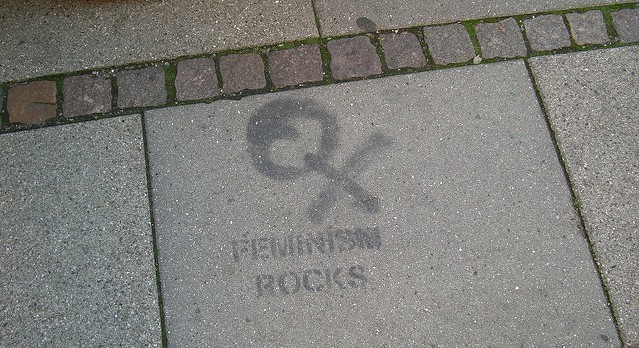In the spring of 2019, the Finnish degrowth network (kohtuusliike) undertook an election campaign. The aim of the campaign was to break the silence around degrowth ideas in political discourse. We were also curious to see how much support calls to limit production and consumption could generate within the ‘system’.
We wrote a short manifesto outlining policy principles which we considered to be necessary preconditions for ecological sustainability and social justice. Over the course of about four months we gathered 169 candidate signatures across 11 political parties supporting the manifesto. In the April national parliamentary elections, 13 candidates who had signed the manifesto were elected into office.
Additionally, we organized three election debates with the theme Green New Deal (GND), one for the national parliamentary elections and one for the European parliament elections. Currently, we are pushing for the organizing of an unofficial parliamentary degrowth network in parliament.
The manifesto
An English translation of the manifesto is available on the last page of this note. The three principles in the manifesto address ecological sustainability, wellbeing, and the transition period (titled ‘ecological reconstruction’, following the language of the independent Finnish research unit Bios). A social justice focus runs throughout.
The manifesto stems broadly from degrowth and adjacent perspectives. It is framed in terms of broad policy principles instead of concrete and precise policy actions. We thought that it might not be fruitful to discuss specifics before discussants agree on the broad direction we should be heading in. However, we also produced a separate set of concrete policy proposals to show candidates who were curious about the manifesto. Some candidates commented that the list of concrete proposals was very helpful.
Of the parties currently in parliament, we received signatures from the Green Party (60), Left Alliance (39), the Social Democratic Party (12), and the Center Party (3). Of the parties not currently in parliament, signatories represented the Finnish Communist Party (21), the Feminist Party (11), the Independence Party (11), the Animal Rights Party (10), Tähtiliike (1) and Kristallipuolue (1). Receiving 169 signatures was a positive surprise. The list of signatures included well-known individuals and long-time politicians.
Naturally, the volume of signatures in part reflects the eagerness of candidates to gain visibility. We had promised to promote the candidates who signed through our own networks and on social media. It is likely that framing of the manifesto in terms of broad principles also made candidates more comfortable to sign, compared to if the manifesto featured specific transformative or radical policy measures. In any case, it was encouraging to see how popular these policy principles proved to be. It is commonly argued that policy proposals that aim to limit production and consumption are completely unrealistic. The outcome of our campaign challenges this idea.
Election debates
The three election debates we organized focused on the Green New Deal and what it would look like in the Finnish or European context. Prior to our events, there had been quite little public discussion about GND. We introduced degrowth themes such as overconsumption and wellbeing issues into the discussion at each event. As organizers we sought to encouraged discussion over intentionally fuelling direct antagonisms.
One of the national election debates took place in Helsinki. The discussion was structured around four themes: 1) how could a Finnish GND be funded, 2) how economic restructuring can happen in a just way without harming people's wellbeing, 3) whether personal CO2 quotas would be an acceptable approach to limiting consumption (based on a pilot project in Lahti, Finland), and 4) whether emission based customs would be a feasible and effective policy approach. About 100 people showed up at the event on a Saturday afternoon. Several candidates said it was one of the best debates they had attended.
The second national election event took place in Salo. It was arranged at an independent movie theatre and combined with watching a climate change documentary. Discussion topics were varied, and at certain intervals two members of our network commented on the discussion from a degrowth perspective. Audience members said they enjoyed the format of letting activists with prior knowledge about sustainability provide additional insights and push the discussion toward were it needs to be.
The European election debate was held in Helsinki in conjunction of the Finnish Social Forum - an annual event comprising of many sessions organized by NGOs and CSOs. The debate covered three themes: 1) ways of financing a GND, 2) limiting production and consumption directly, and 3) wellbeing. Four candidates took part in the debate and attendance was good.
One of our takeaways was that it is worth organizing election debates on themes which we know “the scene” is interested in, but which are not covered by more mainstream forums such as TV debates. People seem to be interested when the event promises something new. As organizers we were well aware of degrowth critiques of GND, but also considered something akin to a GND necessary. We thought that being in the forefront of the Finnish GND discussions, and thus getting to frame it, would be a good idea and an opportunity to introduce degrowth perspectives into a more general policy discussions about sustainability.
A parliamentary network?
We are currently planning to push for the creation of an unofficial parliamentary network around the themes of our manifesto. We will contact the 13 signatories of our manifesto who got elected and offer our support in whatever ways may be useful to them. This support could include expert insights or short discussions with community activist, but the details will still need to be ironed out once/if a network is established. Though a degrowth-style working group may be unprecedented in the Finnish parliament (perhaps globally too), other such loosely tied groups already exist in parliament (e.g. regarding development cooperation).
Wish to get in touch?
We encourage you to get in touch! You can send us a message if you have anything to comment or share. We also hold online meetings sometimes, so arranging a discussion is also possible.
You may already know some of us, but if you don’t, you can contact the network through the form on our website. The only required fields are name (Nimi), your email (Sähköposti) and your message (Viesti). You will also need to tick the box accepting that the information you send is saved on the website database. Administrators will see your message and get in touch or forward your message along as you request.
https://www.kohtuusliike.fi/ota-yhteytta/
Election manifesto by the Finnish degrowth network
1. Reduce production and consumption to sustainable levels
We are living beyond our environmental means. Year after year, Finns use three times the sustainable amount of natural resources. Energy efficiency, recycling and smart technologies are part of the solution, but they do not eliminate the burden production puts on the environment. We cannot reach sustainability through increasing resource efficiency alone if production overall continues to grow. Nor can we simply outsource overconsumption to other countries by increasing emission-intensive imports. It is therefore necessary to tackle the levels of production and consumption head-on.
Actions for reaching ecological sustainability have thus far been far too weak. Political priorities must be changed. The culture of overproduction and overconsumption needs to be abandoned. The state must steer production and consumption toward a sustainable level through regulation and economic policies, like taxation.
2. Sustainable wellbeing for all
Everyone should have the opportunity to live a meaningful, safe and just life within planetary boundaries. Nobody should be dependent on ecologically destructive paid employment to make ends meet. It is possible for work to have negative impacts on wellbeing and the environment. It needs to be easier to allocate time between paid employment, leisure, communal life, care work and other dimensions of life.
Societal structures must be changed so that welfare services are not dependent on economic growth. Our society is already more affluent than ever before. Increasing wellbeing requires first the will to direct resources equitably into actions that help us live a good life. The state must support alternative forms of work, gainful activity and sources of wellbeing. This way we ensure that a sustainable way of life is not just a privilege of the few.
3. Ecological reconstruction, now
We need to fundamentally change the ways in which we produce goods and services and the sources from which we derive our wellbeing. Economic growth and employment should not be promoted by means which increase our ecological debt. Cutting public debt and supporting Finnish competitiveness in global markets can no longer be prioritized over climate change mitigation and environmental sustainability. We need an ecological restructuring – a transition toward a fossil-free society.
The economy and other aspects of society must be restructured to fit environmental carrying capacities. Inequality and poverty must not be allowed to increase over the course of the ecological reconstruction process. Public decision-making and economic policy should be guided primarily by indicators of environmental health and human wellbeing. The state must support the investments required for ecological reconstruction and promptly abandon its current course of ecologically destructive growth. The longer we wait, the more difficult and expensive the transition will be.

